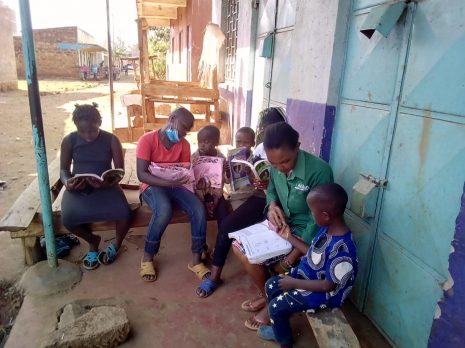World Teachers Day 2020: Leading in crisis
5 October 2020
On October 5th, every year UNESCO celebrates World Teachers Day. The day provides the occasion to celebrate the teaching profession and gives a moment of reflection to consider the positive impact that teachers have each and every day.
This year as COVID rages and schools remain largely closed, the theme of ‘Teachers: Leading in crisis, reimagining the future’ seems particularly apt.
The COVID-19 pandemic has meant that teachers around the world have had to swiftly adapt to new and innovative ways of teaching children who are no longer in front of them in a classroom; around 1.5 billion children have been affected by school closures. Technology, that has often been used to support teachers, has taken on increasing significance as governments and education providers have adapted to distance learning programmes.
At the heart of much of this remote programming has been teachers – from audio lessons; to virtual classrooms; community engagement to the provision of physical self study packs, teachers have remained central to the daily lives of their students.

Teachers have been key in providing continuity of education, helping pupils to adapt to the new normal while adapting themselves. Teachers like Enitan Adewusi in Lagos, have used WhatsApp to take the pupils through their daily lessons, answer questions and encourage them to stay safe.
In communities where WhatsApp is already a prevalent tool, adapting it to deliver lessons has been a sensible approach. In Uganda, Headteacher Samuel Kakaire has been visiting 2-4 families every morning and helping parents who do not have access to WhatsApp – or who struggled with data – to access the home learning materials.
Community engagement visits have been key in helping parents understand the options available to them but also to support children whose families may struggle with the necessary literacy skills to help them with their daily lessons.

In Kenya, Catherine Wanjiku has been taking to the airways with her students to encourage pupils and families to access home learning materials. Radio has proven an important tool in underserved communities both for delivering lessons and reaching families.
She has also been supporting communities through a cybercafe programme, ensuring that learning materials are available in designated cybercafes for families to photocopy rather than print, increasing their accessibility and affordability.

On a system wide level, In Edo State, the government has secured a telecom partnership, zero rating their online @home programme. Government teachers in the state have been operating virtual classrooms through WhatsApp, answering questions, providing feedback and remaining a key point of contact for children and their families.
The list goes on, in each community teachers are working hard in spite of the challenges to ensure continuity of learning. In many cases, they are continuing to put the ongoing development and welfare of their students above themselves.
They have proven themselves to be some of the strongest community leaders through the pandemic; providing reassurance, support and guidance. As governments and educators re-imagine their education systems for a post Covid world, teachers will no doubt help shape them.









